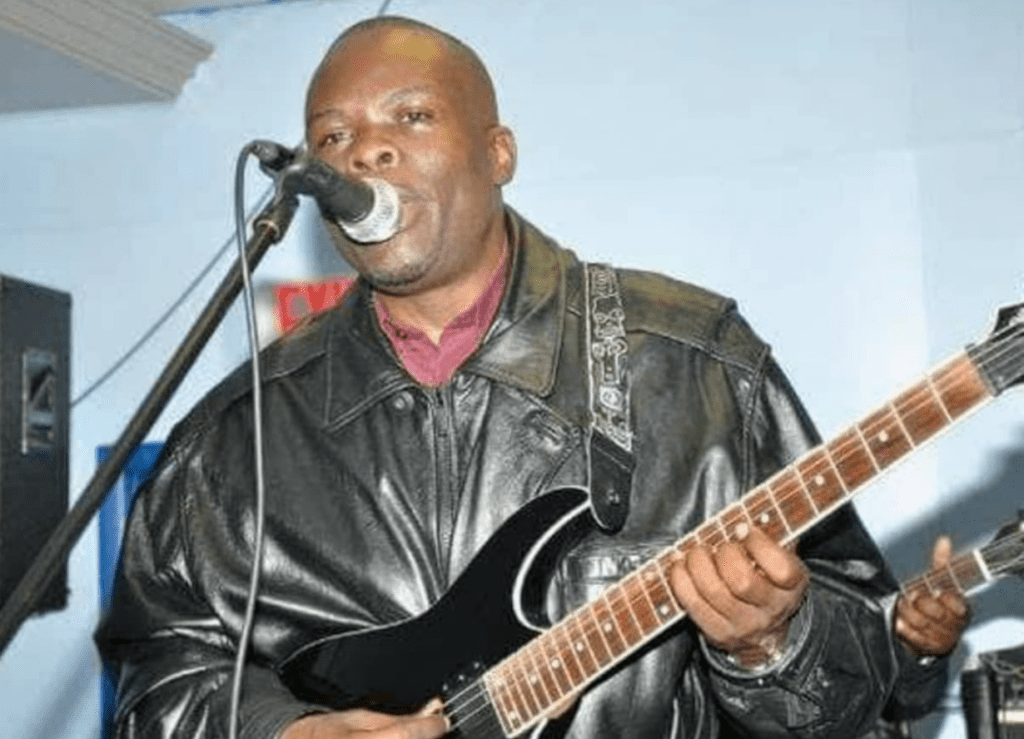Musa Juma, born on December 6, 1968, in Alego Usonga, Siaya County, developed a profound interest in music at the tender age of 10. Inspired by the legendary Franco Luambo Luanzo Makiadi from the Congo, Musa embarked on a musical journey that would leave an indelible mark on East African music.
Musa Juma Educational Background
Growing up in Homabay, Musa attended primary and secondary schools before completing his education in 1990. His initial foray into the business world, dealing in general merchandise, took a turn when he decided to follow his passion for music. In 1992, he co-founded the Orchestra Limpopo International Band with his brother Omondi Tonny, showcasing his prowess as a strict disciplinarian.
Musa Juma Family
Musa Juma hailed from a modest background; his father, a policeman, earned around Ksh 2,800 during the 1970s and 1980s. Born to the second wife of his father, who had three wives and a total of 18 children, Musa Juma’s roots traced back to Alego Usonga.
Musa Juma Contributions and Pan-African
Musa Juma’s musical legacy encompassed a diverse array of songs, each resonating with his Pan-African vision. With eight albums to his name, including the final masterpiece “Lake Victoria,” Musa aimed to build a grand orchestra of African musicians by incorporating diverse languages to appeal to a broad audience.
Also Read: Rosemary Wahu Kagwi Music Journey: Net Worth, Husband, Family, Songs
From Tanzania, he brought talents like vocalist Jose Mzungu and guitarists Makaranga and Makubania. Congo contributed Mokili, Vasco da Gama, Frank Libe, Prof.Azile, and Salawowo Salapata. Locally, stars from Kenya such as Sande Asweda, Owacha Willy, Ken Watenya, Prince Kasam, John Junior, Igwe Prezda Bandason, Madanje Perimeter, Salim Watiechere, and his brother Omondi Tonny joined the ensemble.


Musa Juma Social Commentary
Musa Juma’s songs, including “Oyoo Daktari,” “Safari,” “Rikni Nyombo,” and his favorite, “Saida,” became anthems that transcended borders. In tracks like “Hera Mudho,” he delivered poignant social commentary, cautioning against the pitfalls of materialism in relationships. Through lyrics like “Hera gima rumo ki hero pesa ti hero jachien” (Love is pointless if money is the only denominator), Musa conveyed the idea that love should not be overshadowed by material possessions.
Musa Juma Legacy
Musa Juma led the Orchestra Limpopo International Band until his untimely death on March 15, 2011, at Mombasa Hospital due to pneumonia. He left behind his wife Winnie and daughter Vicky. His impact on East African music endures, and his vision of a united, Pan-African musical community lives on through his timeless compositions.
Musa Juma’s musical journey from a small village in Siaya County to international recognition exemplifies the power of passion and talent. His legacy continues to inspire aspiring musicians, and his contributions to social commentary through music remain relevant. Musa Juma, the grand Pan-African, has etched his name in the annals of East African musical history.

